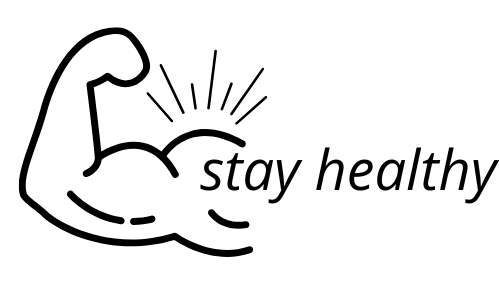Listen to Your Body: The best Key to Optimal Health
Ever felt like your body was trying to tell you something? Those small whispers of discomfort or unexpected fatigue are more than just random. They are your body’s way of guiding you toward better health.
Your body is an amazing messenger, always sending signals about your health. Learning to listen to your body and to these signals can help you understand your health better. Every feeling, from muscle tension to digestive changes, offers insight into your wellness.
Mindful living is more than just a trend. It’s a key to understanding your health. By tuning into your body’s signals, you can make better choices about what you eat, how you exercise, and how you manage stress.
Table of Contents
Understanding Body Awareness and Its Impact on Wellness
Your body sends out signals and sensations that can reveal a lot about your wellness. It’s key to understand this connection for good self-care. This helps keep you healthy and feeling your best.
“The body keeps the score of our emotional and physical experiences.” – Bessel van der Kolk
Decoding Your Body’s Signals
Research shows a strong link between our physical and emotional health. About 70% of people feel physical symptoms due to stress. These signs can show up in many ways:
- Chronic muscle tension
- Unexpected fatigue
- Digestive disruptions
- Persistent headaches
- Mood fluctuations
Benefits of Enhanced Body Awareness
Being more aware of your body has many benefits. Studies show that mindfulness can:
- Reduce anxiety by 50%
- Help manage emotions better
- Improve stress handling
- Lead to better health choices
Cultivating Mind-Body Connection
Somatic techniques are great for improving body awareness. About 80% of people using these methods see big improvements in emotional and self-understanding. By noticing your body’s feelings, you can gain deeper insights into your health.
Listening to your body is more than just finding problems. It’s about having a kind conversation with yourself. This supports healing and growth.
Why You Need to Listen to Your Body
Your body has its own language, one that’s not just about words. Somatic intelligence helps you understand these subtle messages. These messages can change your health and happiness. Yet, about 55% of people miss these signals, missing chances for self-care and growth.
Not listening to your body can cause big health problems. Here are some shocking facts:
- 70% of people feel like they’ve failed when they don’t reach health goals
- 80% ignore hunger signs while dieting
- 65% are always tired from working too much
Intuitive eating is a strong way to reconnect with your body’s wisdom. By noticing physical feelings, you can:
- Know when you’re really hungry or full
- Lessen health problems caused by stress
- Boost your physical and mental health
Studies show that people who focus on body awareness feel 40% better overall. Your body is smart and always gives you feedback. Learning to listen can stop long-term health issues, reduce burnout, and help you live a more balanced life.
The body keeps the score, and it’s time to start listening.
Begin your path to somatic intelligence today. Start tuning into your body’s unique messages and needs.
Common Physical Signals and Their Meanings
Your body sends out signals that tell you a lot about your health. Understanding these signs is key to managing stress and staying healthy.
Knowing what your body is trying to tell you can be very enlightening. These messages range from small discomforts to big signs that need your attention.
Pain and Discomfort Signals
Pain is a big way your body talks to you. Different kinds of pain mean different things:
- Sharp, sudden pain might indicate immediate injury
- Persistent aching could signal underlying chronic conditions
- Localized discomfort often points to specific health concerns
Energy Level Indicators
Your energy levels tell you a lot about your stress and health. Knowing these signs helps you make better choices in your life:
| Energy Level | Potential Meaning |
|---|---|
| Consistent Fatigue | Potential stress or nutritional deficiency |
| Sudden Energy Bursts | Possible hormonal fluctuations |
| Midday Exhaustion | May indicate poor sleep or dietary issues |
Digestive System Cues
Your digestive system gives critical insights into your body’s state. Symptoms like bloating, irregular bowel movements, or stomach pain can point to deeper health issues related to stress and diet.
By paying attention to these signs, you can take charge of your health. This means observing your body closely and acting on what you learn.
The Role of Stress in Body Communication

Stress is a strong messenger in your body’s communication. When stress goes up, your body sends urgent messages. About 75% to 90% of doctor visits are because of stress symptoms.
Your body shows stress in many ways. Some signs include:
- Persistent muscle tension
- Frequent headaches
- Digestive system disruptions
- Sudden mood changes
- Decreased energy levels
Mindful living means understanding these stress signals. The body changes a lot when stressed. Chronic stress can start a chain of hormonal changes. This affects heart rate, blood pressure, and energy.
“Stress is not what happens to you, but how you react to it.” – Hans Selye
Good stress management is about catching these signs early. About 80% of people who use mindfulness and relaxation see less stress. Deep breathing, exercise, and meditation can cut cortisol by up to 30%.
By listening to your body’s stress messages, you can find better ways to cope. This helps avoid long-term health problems. Your body is trying to tell you something. You just need to listen.
Sleep Patterns and Physical Well-being
Quality sleep is key to holistic wellness. Your body needs consistent sleep to repair and stay healthy. Learning how sleep affects your health can change your self-care and life quality.
Understanding Sleep Quality Signals
Your body talks to you through sleep patterns. Knowing these signals can help you find health issues. Important signs of good sleep include:
- Difficulty falling asleep
- Frequent nighttime awakenings
- Feeling unrefreshed upon waking
- Excessive daytime fatigue
Creating Healthy Sleep Habits
It’s important to have regular sleep routines for your health. Here are some tips:
- Maintain a consistent sleep schedule
- Create a cool, dark sleeping environment
- Limit screen time before bed
- Practice relaxation techniques
Impact of Sleep on Recovery
Sleep is vital for physical recovery and health. Enough rest helps with:
| Sleep Duration | Health Benefits |
|---|---|
| 7-9 hours nightly | Optimal cognitive function |
| Consistent sleep schedule | Enhanced physical repair |
| Quality REM sleep | Emotional regulation |
Remember, prioritizing sleep is not a luxury—it’s a fundamental aspect of your self-care practices. By listening to your body and addressing sleep challenges, you can significantly improve your overall health and well-being.
Exercise and Body Awareness: Finding the Right Balance

Learning to listen to your body during exercise is key to developing somatic intelligence. Your workout should be a dialogue between your physical limits and how you feel. Not every day needs the same level of effort or type of activity.
Mindful living means understanding your body’s signals. If you’re tired or sore, it’s important to know if you need to rest or do some light movement. Your body talks to you through feelings, and learning to listen can avoid burnout and injury.
- Recognize signs of fatigue
- Differentiate between productive discomfort and potential injury
- Practice intuitive exercise approaches
- Incorporate strategic recovery periods
Knowing your limits doesn’t mean you should avoid challenges. Somatic intelligence helps you adjust your workout based on how you feel each day. Some days you might need intense training, while others are better for gentle stretching or rest.
| Body Signal | Recommended Action |
|---|---|
| Extreme muscle soreness | Active recovery or light movement |
| Low energy levels | Shorter, less intense workout |
| Sharp pain | Rest and consult healthcare professional |
By focusing on body awareness, you turn exercise into a flexible, supportive practice for your well-being.
Nutrition and Your Body’s Response
Nutrition is key to holistic wellness. It helps you understand your body’s needs. Your food choices are a conversation with your body.
Intuitive eating is a new way to think about food. It lets you listen to your body’s hunger and fullness signals. Studies show it has many benefits:
- 30% reduction in binge eating episodes
- 20% increase in meal satisfaction
- 25% decrease in emotional eating
- 70% of practitioners report reduced food-related guilt
Intuitive Eating Principles
Intuitive eating helps you have a good relationship with food. Eat when you’re hungry and stop when you’re full. It helps you avoid strict diets and find a balanced way to eat.
Food Sensitivity Awareness
It’s important to know how your body reacts to food. Look out for signs like bloating, headaches, or feeling tired after eating. Keeping a food diary can help you spot patterns and make better food choices.
Hydration Signals
Your body tells you when you need water. Signs include dry mouth, feeling tired, or not thinking clearly. Drink water all day and listen to your body’s thirst to stay hydrated.
Conclusion: Embracing Your Body’s Wisdom for Long-term Health
Your journey to holistic wellness starts with body awareness. Studies show that mindfulness can lower stress by 25%. This proves that listening to your body is key, not just a trend.
By paying attention to your body, you make better choices for your health. This is especially true for preventing chronic diseases, which are often preventable. So, notice when you’re tired, feeling down, or in pain. These signs are clues to your health.
Wellness isn’t about being perfect. It’s about making mindful choices every day. By being self-aware, you can lower depression risks and feel better overall. Your body is full of wisdom, and learning to listen to it is powerful.
Begin your wellness journey by observing yourself, practicing mindfulness, and making thoughtful health choices. Remember, your body is more than a vessel. It’s a wise guide to your best health and happiness.








One Comment
Comments are closed.